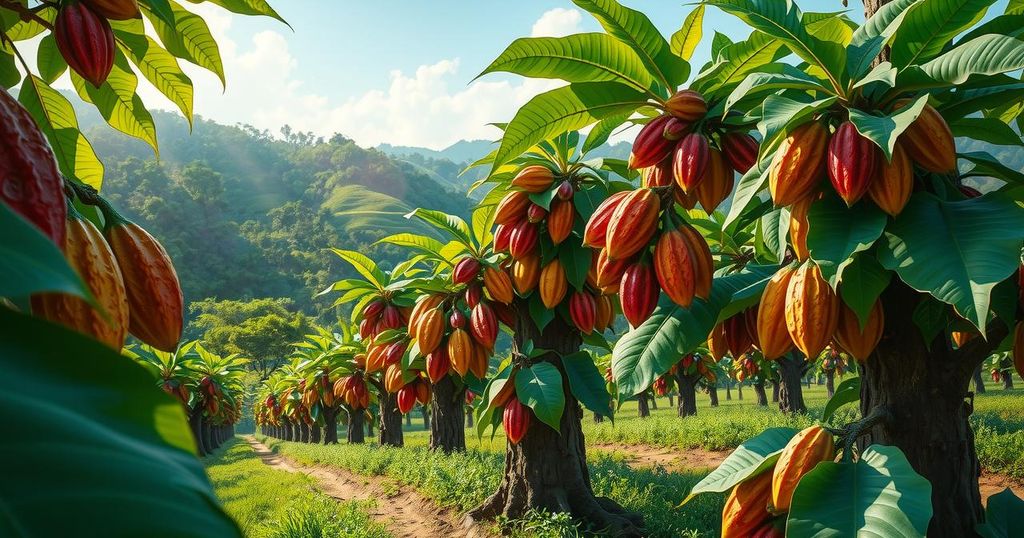Nigeria seeks to enhance its role in the cocoa market, aiming for a production target of 500,000 tonnes by 2024-2025. Soaring global prices, particularly after reaching $12,000 per tonne in December, have attracted investment interest. However, challenges remain regarding sustainability and support for small-scale farmers.
Nigeria is aiming to enhance its position in the global cocoa market as prices surge, particularly after reaching a record $12,000 per tonne in December. With climatic issues and diseases affecting major producers like Ivory Coast and Ghana, Nigeria sees an opportunity to expand its production capabilities. Patrick Adebola, from the Cocoa Research Institute, noted that “the farmers have never had it so good.” More than a dozen local firms are considering investments in the cocoa sector this year.
In 2023, Nigeria ranked as the seventh-largest cocoa producer with over 280,000 tonnes, according to the UN’s Food and Agriculture Organization. The government has set a challenging goal of 500,000 tonnes by the 2024-2025 season, potentially placing Nigeria fourth globally. While Adebola expresses skepticism about achieving this target immediately, he acknowledges growing interest in rehabilitating old farms and establishing new ones as positive signs for the future of cocoa cultivation.
Cocoa futures contracts have decreased from their peak but remain elevated, currently over $8,000 per tonne, compared to $2,000-$3,000 before the recent price surge. According to Comrade Adeola Adegoke, the president of the Cocoa Farmers Association, individual farmers are increasingly involved in cocoa production as they seek to benefit from these favorable prices.
While Ivory Coast and Ghana face challenges in production, Nigeria has managed to avoid some of the adverse climate impacts, although environmental risks remain with expanding cultivation. To manage these issues, the National Cocoa Management Committee was established in 2022 to regulate and support local farmers. However, concerns are rising regarding sustainable agricultural practices as monocrop farming gains traction.
Challenges persist for small-scale farmers like Peter Okunde, who lack sufficient capital and land to grow their cocoa plantations. He stated that land access is crucial, while John Alamu from Johnvents emphasized that effective support from the government, including the provision of seeds and training, is essential for Nigeria to reclaim its leading role in cocoa production.
In conclusion, Nigeria is strategically positioning itself to capture opportunities in the cocoa market amid soaring prices and challenges faced by leading producers. With ambitious production goals and increasing investments, the country aims to bolster its standing in the industry. However, attention to sustainability and farmer support will be critical to ensure long-term success and maintain environmental health.
Original Source: www.hindustantimes.com




